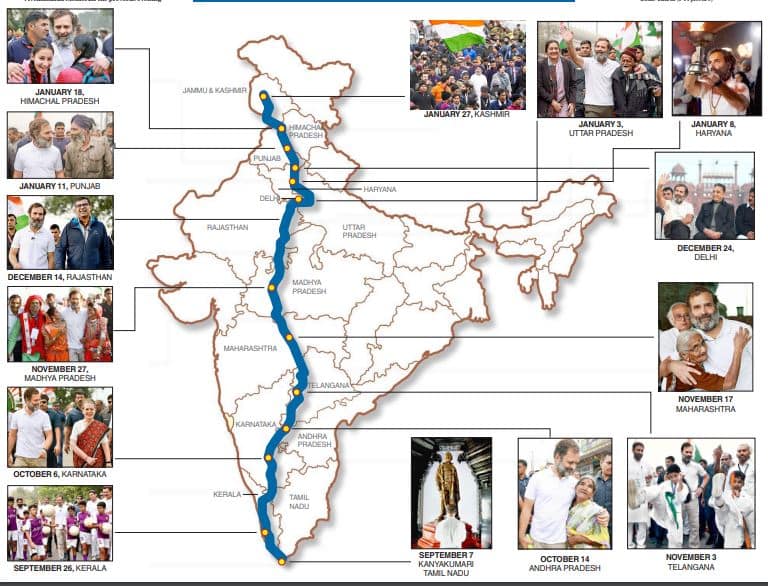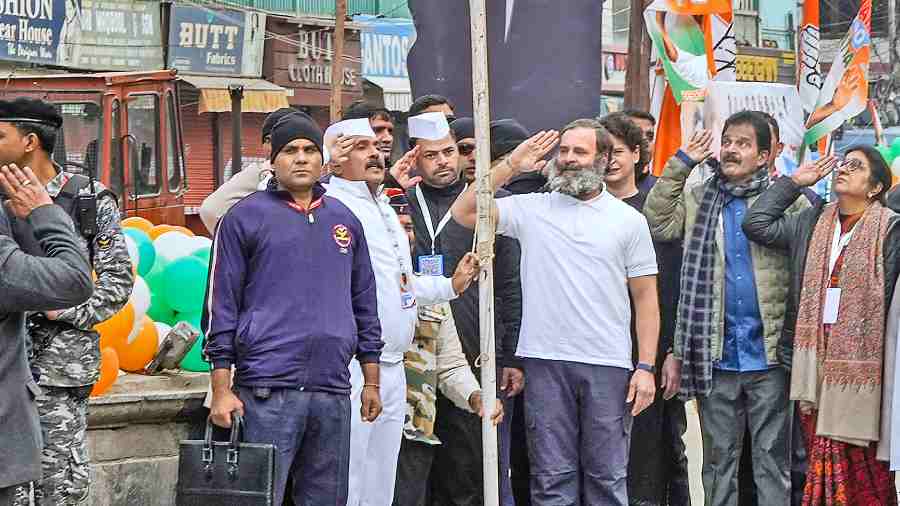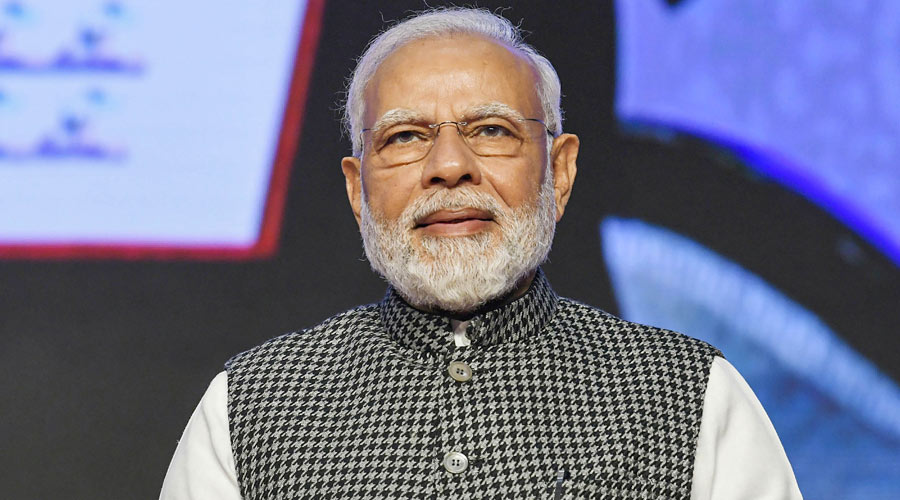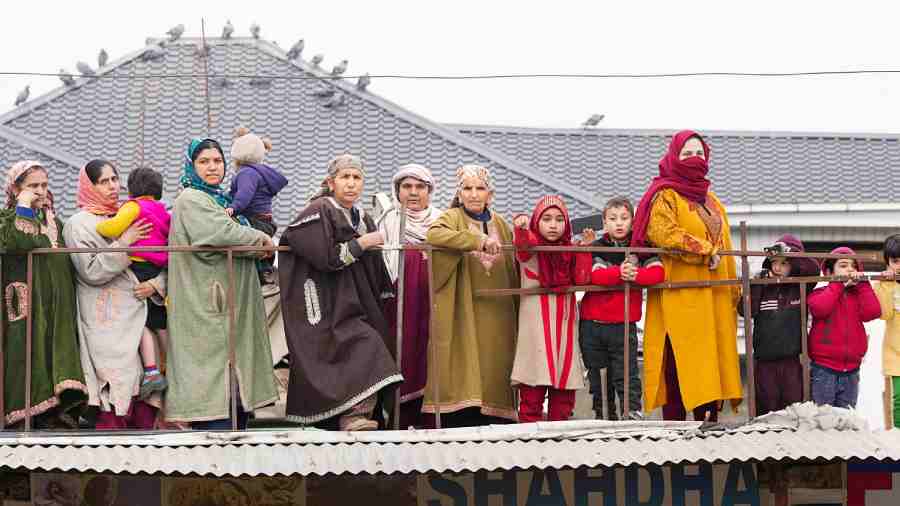A walk that was probably the longest continuous march in recent history, an outreach that has the potential of redefining the nature of political mobilisation, a gesture that transcended barriers of class and caste, a message that bridged the growing chasm between religious communities, a sentiment that flickered like rays of hope in the abyss of cynicism, came to fruition on Sunday.
Starting from the seashore in Kanyakumari where three oceans meet, the culmination of the Bharat Jodo Yatra in the lap of the Himalayas reaffirms India’s faith in pluralism and assimilation of cultures and religions, apart from the constitutional principles of equality and justice. Woven around the lofty objectives of social harmony, national unity, democratic spirit and critical livelihood concerns, the message of the Yatra reverberated across the country for five months, drawing out millions of people in curiosity, admiration and support.
While India has seen much bigger campaigns in motorised raths where toxic slogans and discriminatory rhetoric overrode the political message, symbols of this march on foot revolved around love, compassion, equality and justice. Though politics lay dormant beneath the philosophical quest of overpowering fear and hate, the biggest achievement of the Yatra undoubtedly is the restoration of the belief that the RSS-BJP hegemony will face resistance at all levels.
The purpose might not have been overtly political but the outcome is; the Yatra has smashed the notions of the invincibility of the Sangh parivar. It has given hope and voice to the weaker sections, re-emphasised the vitality of constitutionalism and set the stage for a decisive political battle. The sense of surrender, accentuated more by institutional capitulation, has evaporated. Yes, the mission for peace has prepared the demoralised Opposition for future battles.
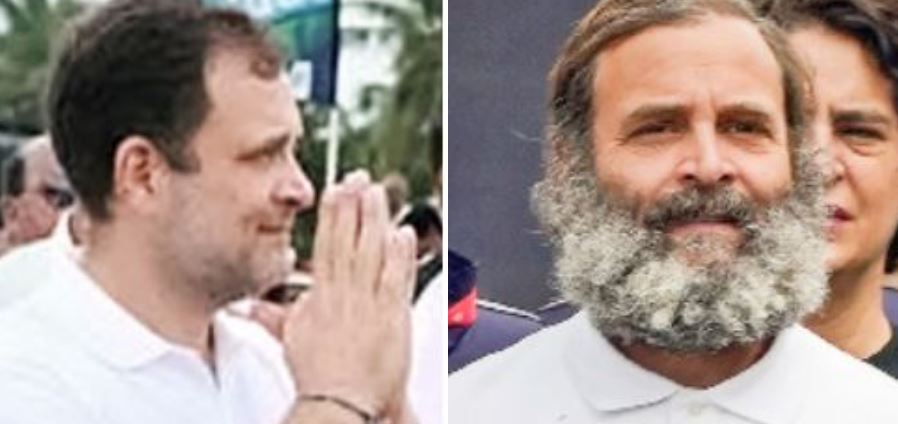
(Left) SEPTEMBER 8, 2022: Rahul Gandhi on the day the Yatra started from Kanyakumari after its launch at the Vivekananda Memorial the previous evening | (Right) JANUARY 29, 2023: Rahul Gandhi at Lal Chowk in Srinagar, the final destination of the Bharat Jodo Yatra. PTI
Rahul Gandhi too argued at his concluding news conference here on Sunday evening that the Bharat Jodo Yatra wasn’t just a walk but a road map of how India should move forward.
“The walk was a sentiment – listen to people, embrace them. It gave a vision against the hate-filled, arrogant vision of the RSS-BJP. A deeper understanding may emerge. New ideas will come up through this experience.”
Rahul said the political class in India, all political parties, had got disconnected from the masses and all the conversations happened through the media. The distance wasn’t merely physical as the communication channels had their own compulsions and vested interests, vitiating the whole climate of dialogue, Rahul added. “Apart from the disconnect with the people, other gaps have developed. Unbiased communication like earlier is no more possible. Media doesn’t give importance to the Opposition.”
Those who challenged the RSS-BJP were compelled to invent new methods of communication to overcome the bias that had crept into the media and the Bharat Jodo Yatra is one small step towards that, the Congress leader said.
“I am thinking of bigger initiatives,” he said, in response to questions about his future plans and the strategy to sustain the momentum created by the Yatra.
The Yatra will have a deep impact on politics, Rahul said, without elaborating on the outcomes in concrete terms. But he appeared satisfied with the success of the movement in conveying the message to the common people on the streets that the RSS-BJP had crippled the institutional framework of the country, that the shocking economic inequality was a result of wrong policies and intentions, and that India’s real strength lay in pluralism.
Rahul was emphatic that there was no way forward other than following Gandhian tolerance and constitutional morality. “We all are one. We have to respect all castes, all religions. We will be able to move forward only if we embrace each other and move together.”
While he did try to argue during the Yatra that the objectives were not political, he said on Sunday that this arduous struggle, in which millions of people participated, has the potential of triggering a fierce churning in India’s polity.
The most tangible outcome, as could be gathered through informal conversations with leaders and party workers, is the new stature Rahul has acquired within the Congress. While the lingering doubts about his abilities and dedication have disappeared in the rough and tumble of a 3,570km walk, his relationship with the people of India too has evolved during these 135 days. The feeling that a leader who cares, who is willing to fight for the people’s cause with his blood and toil has replaced the perception of an entitled dynast who knows little about the ground reality.
The MP from Wayanad has now put his nose to the grindstone; feeling the pulse of this country with his own hands, understanding the struggle of the people – their joys and sorrows, and making a personal commitment to fight for their welfare. He said on Sunday that he had learnt a lot; after all, the Yatra was not merely a testimony to his physical endurance, it had also nourished his philosophical disposition and psyched him up for bigger battles.
Rahul Gandhi has not only matured; this Yatra has made him a prisoner of his new noble image that will render a dramatic reversal almost impossible. He himself knows that. He declared on Sunday that the walk had ended but the mission would continue.
135 DAYS, 13 STATES, 1 UT, 3570KM
